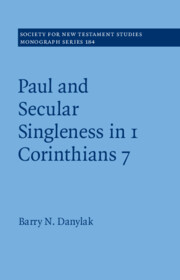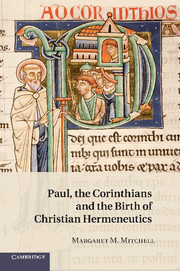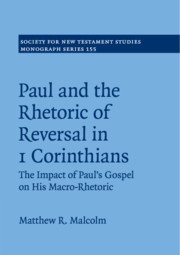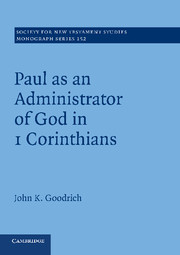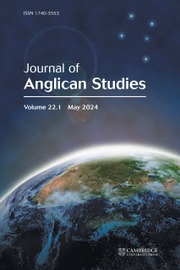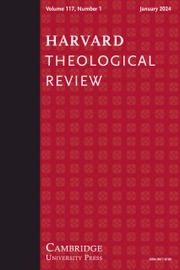Paul and Secular Singleness in 1 Corinthians 7
Paul's discussion of marriage and singleness in 1 Corinthians 7 has long presented exegetical challenges, beginning with the chapter's opening statement: 'It is good for a man not to touch a woman.' Interpreters continue to debate whether the ascetic language of the statement reflects the views of Paul or the Corinthians. They also debate the motivations for the rise of an ascetic movement in Corinth. In this ground-breaking study, Barry N. Danylak offers a fresh solution to these conundra. Using evidence from Egyptian census papyri, he demonstrates the prevalence of secular singleness in Roman urban environments. He also draws on classic Greek marriage debates to argue that the Corinthians' disposition likely reflected an Epicurean perspective of secular singleness; and that Paul himself was responsible for the 'touch' language as a rhetorical adaptation in his response to the Corinthians' question. Combining fresh evidence with attentive analysis, Danylak's study thus proposes a viable resolution to these long-standing exegetical challenges.
- Provides a rich data portrait of marriage and singleness in the Roman world never before compiled
- Includes evidence from Philodemus' discussion of singleness and household management from recovered the Villa of the Papyri in Herculaneum
- Removes the single major textual stumbling block that compelled interpreters to contend for an ascetic movement among Paul's interlocutors in Corinth
Product details
March 2024Adobe eBook Reader
9781009373845
0 pages
This ISBN is for an eBook version which is distributed on our behalf by a third party.
Table of Contents
- 1. Introduction and methodology
- 2. The demographic shape of secular singleness
- 3. The ideological shape of secular singleness
- 4. The context of 1 Corinthians 7
- 5. The crux of 1 Corinthians 7
- 6. The content of 1 Corinthians 7
- 7. Findings and conclusions
- Appendix: individuals from Egyptian census classified by age.

